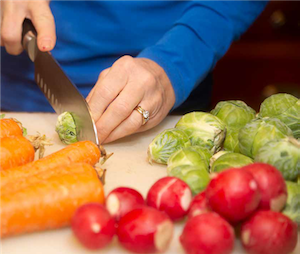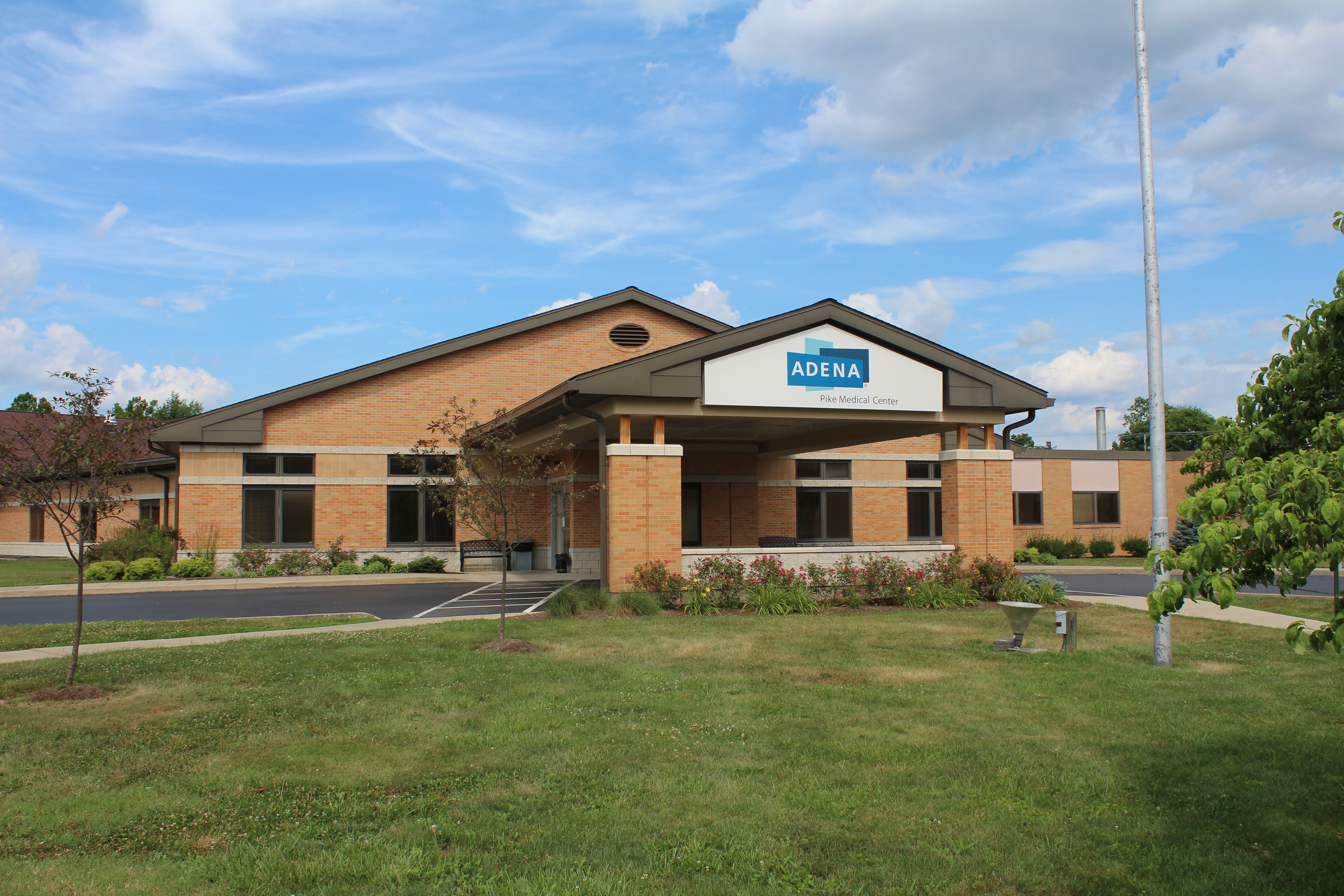It’s All About Choices

Dietitians get honest about the necessary steps to create lasting lifestyle changes
 Jill Hopkins doesn’t like to use the D-word.
Jill Hopkins doesn’t like to use the D-word.
“We don’t like to call it a diet because a diet is temporary,” says Hopkins, a registered dietitian with Adena Health System. “We prefer to call it a lifestyle change.”
Whatever term you use to describe the foods you cut out in an effort to lose weight, Hopkins and fellow Adena dietitian Paulina Giba are eager to offer tips for healthy living.
“It all starts with avoiding temptation,” Giba says. “Don’t overindulge.”
TAKING THE STEP
Avoiding overindulgence can be particularly challenging in the winter months, especially during the holidays, but Hopkins has a solution that should leave most satisfied.
“We’re not going to tell you to skip the mashed potatoes and gravy at Christmas dinner, but instead of taking two or three scoops just take one scoop of potatoes and then fill your plate with vegetables,”
Hopkins says. “It’s important to get into the habit of smaller portion sizes.”
“All things in moderation,” Giba adds.
Those ready to dive into a lifestyle change will want to start by reducing the amount of foods high in animal fat. Bacon,sausage, bologna and other processedmeats, as well as red meats such as beefand lamb, should be limited.
Plant-based foods, as well as animal-based foods containing healthy fats — salmon and trout, for example — are all healthy additions. Gobbling up these plant-based foods and healthy fats not only improves your chances of dropping a few pounds, you’ll also likely see your cholesterol levels decline.
Of course, not everyone has the luxury of preparing a salmon dinner with a side of broccoli and a few slices of avocado every day. There may be times when fast food is unavoidable. When that does happen, Giba and Hopkins remind you to eat smart and pay close attention to the menu.
“If you can avoid fast food, then more power to you,” Hopkins says. “When we’re working with our clients and the (fast food) topic comes up, we encourage them to look at the menu and see if there is an option with grilled chicken. That is a much better choice than a bacon double cheeseburger.
“It seems like many more people today grew up on fast food than they did 35 years ago. There are many people who have never even tasted Brussels sprouts. We need to get people to eat more fruits and vegetables like they did two generations ago.”
WHAT WORKS FOR YOU
Habitual unhealthy eating is universally bad and can lead to heart disease, cancer and diabetes. But coming up with a healthy lifestyle change that works for you can be more complex than it may seem.
“What works for one person may not work for another,” Hopkins says. “What we really like to do is have a 60-minute, one-on-one session with our clients to get into the specifics of what they are trying to achieve, and their current eating habits. Everyone is different, so that’s why there isn’t just one answer.”
While everyone is unique, anyone can benefit from putting down the burger and fries and picking up carrots, celery, apples, oranges and bananas.
“It is really important to eat more fruits and vegetables,” Giba says. “Reducing the foods that are high in sodium and replacing them with plant-based foods will make you feel better and give you more energy.”
HOW TO GET STARTED
So you’re ready to begin your new lifestyle and want the assistance and guidance of an Adena dietitian — good decision.
To get started you’ll need a referral from your physician. Once the referral has been obtained, fax it to Adena’s Scheduling Office at (740) 779-4462.
There are eight dietitians in the Chillicothe region, serving Chillicothe, Greenfield and Waverly. Hopkins says the initial 60-minute, one-on-one visit will be used to discuss eating habits and health history and to devise a plan for the client to reach their desired goals. Follow-up visits will be used to track progress. Click here for more informartion.


Quality of Adena Pike Medical Center’s acute stroke ready care recognized with certification renewal